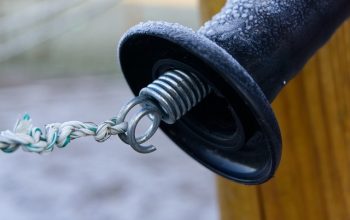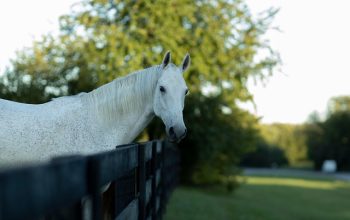Cattle farming requires secure fencing to protect livestock from wandering onto roads or neighboring properties and to safeguard against wildlife and theft. High-security options like steel or electric fencing are recommended, with electric fencing offering a flexible, easy-to-install solution that can be remotely monitored. Durability and proper maintenance are key for long-lasting protection. A cost-benefit analysis should guide fence selection, balancing initial investment with future savings; budget-friendly chain link lasts up to 25 years, while steel or electric fencing provide longer-term value.
In the realm of farming, ensuring both cattle security and effective containment is paramount. This comprehensive guide explores high-security fencing options tailored for cattle management, delving into their unique requirements and farm security needs. From understanding animal behavior to selecting robust fencing types, we provide an in-depth look at installation, maintenance, and cost considerations. By the end, farmers will be equipped with the knowledge to make informed decisions regarding optimal fencing solutions for their operations.
- Understanding the Needs of Cattle and Farm Security
- Types of High-Security Fencing for Farms
- Installation and Maintenance Considerations
- Cost and Longevity Analysis: A Farmowner's Guide
Understanding the Needs of Cattle and Farm Security
Cattle have specific needs that must be met to ensure their health and well-being on a farm. Understanding these requirements is crucial when selecting fencing options for your property. Cattle are curious animals, known to wander and explore, so a secure fence is essential to prevent them from straying onto roads or neighbouring lands. Moreover, they require adequate space to move around and access water sources without hindrance.
Farm security is another critical aspect that goes hand in hand with choosing the right fencing for cattle. High-security fences protect your property from potential intruders or wildlife, ensuring the safety of both your livestock and your land. In areas prone to wild animal sightings or theft, robust and tall fences are often necessary to create a safe enclosure for cattle, providing peace of mind for farmers and ranchers alike.
Types of High-Security Fencing for Farms
When it comes to fencing for farms, high-security options are essential for safeguarding cattle and maintaining the integrity of your land. The market offers a variety of robust materials and designs tailored to different farm needs. One popular choice is steel fencing, renowned for its durability and resistance to damage. This type of fencing can be highly effective in keeping cattle contained while providing a strong barrier against potential intruders.
Another option is electric fencing, which offers a safe and efficient way to manage livestock. This system utilizes low-voltage electricity to deter animals from certain areas, ensuring they remain within designated boundaries. Electric fences are flexible, reusable, and easy to install, making them a preferred choice for many farmers. Additionally, modern technology has introduced smart fencing systems that can be monitored and controlled remotely, offering even greater peace of mind for farm owners.
Installation and Maintenance Considerations
When considering fencing options for your farm, it’s crucial to remember that installation and ongoing maintenance are key aspects. The chosen fencing material should be durable and capable of withstanding the elements while providing adequate security for your cattle. For high-security requirements, electric fencing systems offer a safe and effective solution. These systems typically involve installing sturdy posts at regular intervals, with insulated wires carrying a low-voltage charge to deter animals from entering restricted areas.
Regular maintenance includes checking the fence line for any damage or wear and tear, ensuring all components are in good working order, and adjusting tension as needed. Proper installation and consistent upkeep will maximize the lifespan of your fencing, providing long-term protection for your farm while maintaining the health and safety of your cattle.
Cost and Longevity Analysis: A Farmowner's Guide
When considering fencing options for your farm, a key factor is the cost-benefit analysis of each type. High-security fencing designed for cattle can range from relatively low-cost materials like chain link to more expensive options such as steel or even electric fencing. The longevity of these fences varies significantly too; while chain link offers durability and can last up to 25 years, steel fences may outlast several generations with proper maintenance.
Farmowners should weigh the initial investment against the long-term savings. A more expensive fence might require less frequent replacement but could be a larger upfront cost. Conversely, budget-friendly options could need frequent repairs or replacements over time. For cattle farms, durable and strong fencing is essential to keep livestock secure; thus, choosing materials that offer both quality and value is crucial.
When considering fencing options for your farm, understanding the specific needs of your cattle and prioritizing farm security is key. High-security fencing offers a durable solution, providing both safety and longevity for your investment. By exploring various types of fencing and understanding installation and maintenance requirements, farm owners can make an informed decision that suits their budget and ensures the well-being of their livestock. This guide highlights the importance of choosing the right fencing material, ultimately enhancing the overall efficiency and security of your farm operations.




